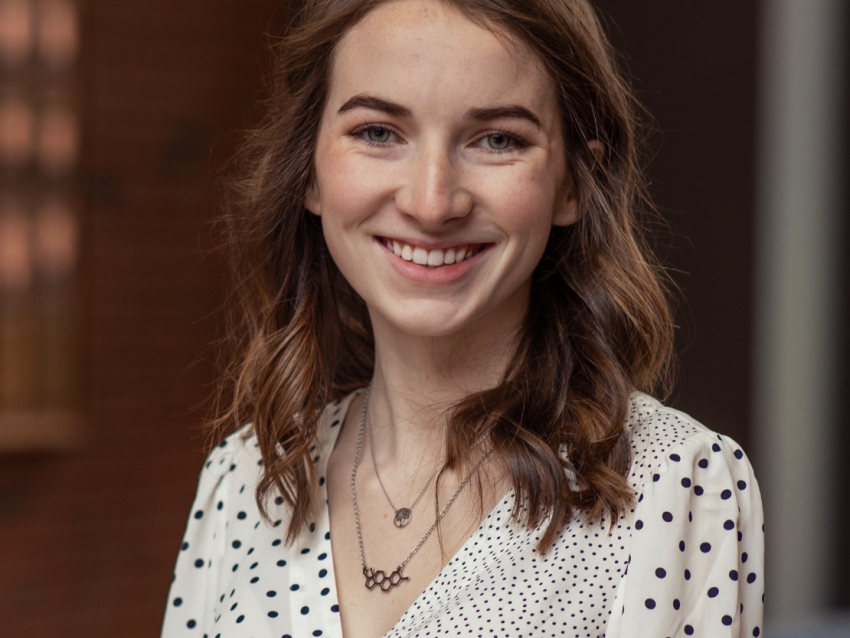
Summer Research Fellow Spotlight Lara Larson
"One of the main goals of this research is for the adoptive immunotherapy to be delivered directly into the liver allograft, as opposed to the current practice of systemic transfusion. This would allow for more successful organ transplantations, as it would introduce a higher amount of immune-regulating T cell retention and therefore tolerance into the body receiving the organ. Additionally, delivery of the T cells into the liver allograft may allow for a lower amount of T cells to be infused, while also increasing the percentage of T cells to reach the transplanted organ. The ability to infuse T cells directly in the portal vein and track their homing in the liver allograft via MRI will be a breakthrough in organ transplantation methods. This strategy will reduce infection risks and significantly reduce the cost associated with the T cell immunotherapy. We believe that the results of this research will warrant more support for future clinical trials and federal funding."
"As a current first-year engineering student, I am optimistic about my future. I have a strong desire to pursue a career in a research field post-graduation and believe that technology like this has the potential to change thousands of lives. A health care professional can impact many lives in their years practicing; however, research has the potential to impact as many people within one project."
Q: How did you first get interested in undergraduate research at UK?
A: "I have known for a long time that I was potentially interested in a research career but I honestly had no clue what that meant or how to begin. As part of one of the required events for the First Year Engineering Program, Dr. Fanny Chapelin spoke about some of her work and interests. At that event, I was extremely impressed by the Department of Biomedical Engineering, and awe-struck by Dr. Chapelin. I attended several other optional events within the BME department in the following months where I spoke to Dr. Chapelin a few times and subsequently ended up reaching out via email following an event. I was able to begin working with her in the spring semester of my freshman year."
Q: How long have you been engaged in undergraduate research?
A: "I started hands-on work around six months ago."
Q: Describe what a typical day of remote summer research activity looks like for you. How does this differ from your pre-COVID research activity?
A: "During the face-to-face part of the spring semester, we were able to have weekly in person lab meetings as well as attend various trainings and time in the lab. Since most of our work is hands on, it was difficult to transition this fully online. Because the university began a phased transition back into research earlier than some of the other in person opportunities, Dr. Chapelin and I are able to be in the lab around ten hours a week. The rest of the time we work remotely on analyzing new information and planning for what is to come next."
Q: What has been the most exciting aspect of your research so far?
A: "When I connected with Dr. Chapelin I did not know a single thing. Nothing. I was completely clueless and Dr. Chapelin has been incredibly patient and taught me so much already. I have been so appreciative of every opportunity I have been given and love everything I have been able to learn so far. It is important to me that the work I do in my life have a meaningful impact on others. Knowing that I am working on a project that could change the lives of thousands has been so rewarding already and I am ecstatic to see where it goes."
Q: What advice would you give to other UK students thinking about doing research?
A: "The first obstacle in anything you want to do will always be yourself. Do not let fear of rejection or failure prevent you from ever trying. If you never ask, the answer will always be no. I was terrified to begin research because I felt like I had so much to learn before I could ever be successful. If you are willing to learn and put in the effort to improve, I promise the experience will be worthwhile."
The UK Office of Undergraduate Research's Summer Research & Creativity Fellowship program provides undergraduates with the opportunity to study in a wide variety of disciplines while doing intensive and self-directed research under the supervision of a faculty mentor.